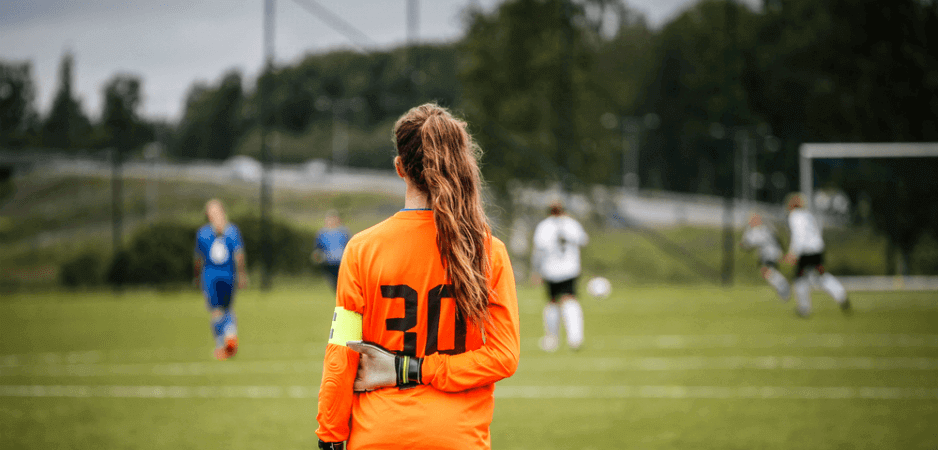Entertainment and profits aside, it is time FIFA put its money where its mouth is and encourage women to play the beautiful game.
Missing teams. Dangerous turf. Low investment. Women’s international football has a problem, not in quality of play or enthusiasm, but in the support provided by its federations and governing body. A lack of funding and institutional leadership from FIFA make it difficult to overcome cultural and logistical challenges, even with the passion of more than 30 million players globally.
The last two Women’s World Cups were profitable but received far less funding than the men’s events. The 2015 tournament hosted by Canada saw participants complaining that artificial turf it was played on caused injuries. In terms of viewership, the 2015 World Cup was a success, as over 25 million Americans watched the final between the US and Japan, more than any other men’s or women’s match in the US market. The men’s World Cup in Russia seemed a lost opportunity to promote France 2019, as talk of next year’s event amounted to almost nothing before US women’s national coach Jill Ellis flew to Moscow to discuss plans for her team. This is but one example of weak support for women’s football at the international level.
FIFA has improved in rhetoric and funding of women’s football over time, its leadership warning television stations broadcasting Russia 2018 matches to refrain from featuring female fans as eye candy. This is a positive shift from when the disgraced former FIFA president, Sepp Blatter, suggested back in 2004 that women wear “tighter shorts” to attract viewers. However, such public relations improvements have yet to translate into greater support for the women’s game itself.
Women’s FIFA rankings show 41 women’s national teams have not played an international match in 18 months and are therefore unranked by the federation. Another eight teams are provisionally ranked because they have not played more than five matches against ranked teams. On the men’s side, by contrast, 206 teams are ranked, and even 206th-ranked Tonga played in 2017.
“Inactive” women’s squads include countries with robust men’s programs like Tunisia, Egypt and Panama, which all qualified for the 2018 FIFA World Cup, as well as Qatar, which will host the 2022 men’s tournament. Tunisia and Egypt’s women have not played since 2016, Panama’s since 2014. Even UEFA’s Armenia and Macedonia lack active women’s teams; Armenia has not played since 2012, and Macedonia did not make it into France 2019. More than 30 countries, mostly in Africa and Asia, but also countries like Bulgaria and Honduras, did not qualify for next year’s event. In most of the world, confederation championships double as the qualifier. This should make it easier for women to enter qualification, but even this has proven a high bar.
Although top women’s national squads have world-class talent, with brilliant goals and elegant, disciplined and fair play, missing teams and consequent lack of depth harms the reputation of women’s football, with some dismissing the event as boring. Some teams had difficulties obtaining the funds to properly compete or afford training facilities, resulting in lopsided scores like Germany’s 10-0 win over Côte d’Ivoire or Ecuador’s 6-0 loss to Cameroon and 10-1 to Switzerland. These countries were unprepared not from lack of skill, but lack of opportunities, facilities and funds.
Prize money is another issue, with FIFA paying the champion US women’s team $2 million, while the bottom 16 teams at the 2014 men’s championship each got $8 million, the men’s champions raking in $35 million. The lack of funding is surprising considering FIFA reported $5.6 billion in revenues between 2015 and 2018.
Football’s governing body can enforce change from the top. FIFA has the funds and the mandate to give federations incentives to support women’s national teams. It requires federations to dedicate 15% of its $900-million financial assistance programs to women’s development, up from 5% in 2004. While FIFA President Gianni Infantino appointed a female general secretary and discussed a global women’s professional league, major change has not materialized.
No amount of passion or grassroots support can overcome the effect of lack of funding and cultural opposition to women’s football. The lack of support stunts the growth of women in the sport, from players to management. More consequential, the World Cup is the best opportunity to inspire women and girls to be part of world’s most popular game. Entertainment and profits aside, it is time FIFA put its money where its mouth is and encourage women to play the beautiful game.
The views expressed in this article are the author’s own and do not necessarily reflect Fair Observer’s editorial policy.
Photo Credit: Michael715 / Shutterstock.com
Support Fair Observer
We rely on your support for our independence, diversity and quality.
For more than 10 years, Fair Observer has been free, fair and independent. No billionaire owns us, no advertisers control us. We are a reader-supported nonprofit. Unlike many other publications, we keep our content free for readers regardless of where they live or whether they can afford to pay. We have no paywalls and no ads.
In the post-truth era of fake news, echo chambers and filter bubbles, we publish a plurality of perspectives from around the world. Anyone can publish with us, but everyone goes through a rigorous editorial process. So, you get fact-checked, well-reasoned content instead of noise.
We publish 2,500+ voices from 90+ countries. We also conduct education and training programs
on subjects ranging from digital media and journalism to writing and critical thinking. This
doesn’t come cheap. Servers, editors, trainers and web developers cost
money.
Please consider supporting us on a regular basis as a recurring donor or a
sustaining member.
Will you support FO’s journalism?
We rely on your support for our independence, diversity and quality.






